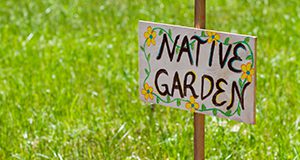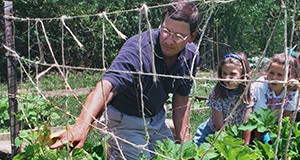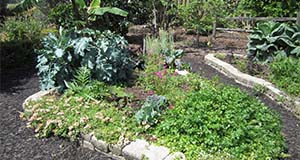Previous publications in the Conducting the Needs Assessment series outlined why, how, and when Extension educators and other service providers should use needs assessments in their programs. The four preceding publications in the series provide Extension educators and other service providers with specific techniques that can be used in needs assessments, and this new 5-page publication provides an overview of using the Delphi technique to conduct a needs assessment. Written by Laura Warner and Amy Harder, and published by the UF/IFAS Department of Agricultural Education and Communication.
https://edis.ifas.ufl.edu/wc364
Tag: Delphi technique
Key Program Outcomes for K-12 School Gardens Identified Through Expert Consensus
National trends indicate that school gardens are positioned to become fixtures in primary and secondary education. This 4-page document outlines key outcomes identified through expert consensus that can be used by Extension professionals to develop a logic model for the school garden program. Written by Susan Webb, John Diaz, and Catherine Campbell and published by the UF/IFAS Department of Agricultural Education and Communication, September 2018.
http://edis.ifas.ufl.edu/wc312
Understanding the Barriers for School Garden Success: Expert Consensus to Guide Extension Programming
Research has found that youth involvement in school gardens leads to numerous benefits. However, teachers and support organizations must overcome barriers for garden sustainability. This 4-page document discusses barriers for school garden success and how Extension faculty can help education professionals overcome them. Written by Susan Webb, John Diaz, and Catherine Campbell and published by the UF/IFAS Department of Agricultural Education and Communication, August 2018.
http://edis.ifas.ufl.edu/wc315
Stakeholder-Identified Barriers, Challenges, and Obstacles in Community Gardens
Florida Extension agents play a vital role in assisting community members to start and sustain community gardens through site visits, workshops, and educational events. This 3-page document discusses the results of a Delphi study conducted in order to create a picture of the barriers, challenges, and obstacles to starting and sustaining community gardens in Florida. Written by Susan Webb and John Diaz and published by the UF/IFAS Department of Agricultural Education and Communication, March 2018.
http://edis.ifas.ufl.edu/wc301
Stakeholder-Identified Community Garden Program Outcomes
Extension clientele often contact agents for expertise on starting or maintaining a community garden; however, agents’ ability to collect meaningful data from these activities can be a challenge. This 3-page publication discusses a statewide study that was conducted by the author to identify community garden outcomes. Written by Susan Webb and John Diaz and published by the UF/IFAS Department of Agricultural Education and Communication, January 2018.
http://edis.ifas.ufl.edu/wc295



